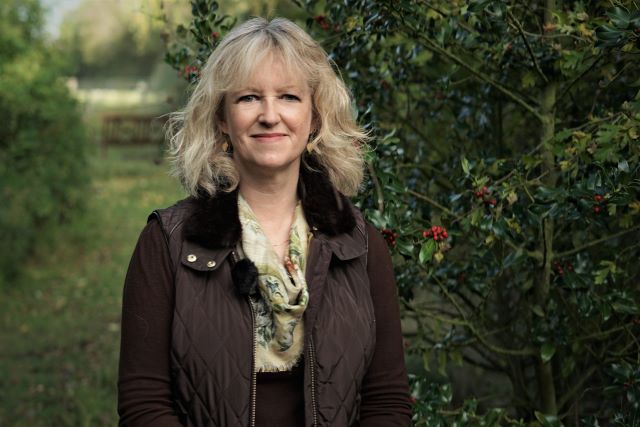Agriculture, or more specifically farming, has been around since the start of humanity. It is essential for human livelihood, and this fact has not changed since then. Up until the early 20th century, almost one-third of the human population were farmers or involved in agriculture. Currently, in countries like the US or the UK, only 1% of the total population are farmers. This is an alarming statistic, considering that by 2050, the human population is expected to rise to almost 10 billion though resources like arable land and water are depleting, and many countries are trying to achieve net zero emissions by 2050. Exasperating the challenges and exposing vulnerable areas like the food production and supply chain is the ongoing COVID-19 pandemic. With all these challenges in agriculture, many farmers are looking towards technology to help alleviate the challenges, if not solve them. Leading the collaborations and innovations is Dr. Belinda Clarke, the Director of Agri-TechE (formerly Agri-Tech East), Europe’s largest commercial membership network connecting farmers with researchers, technologists, investors and more.
Dr. Belinda Clarke is a former John Innes Centre scientist, member of the Council of UKRI-BBSRC, Trustee of the Royal Norfolk Agricultural Association, and a Non-Executive Director of Agrimetrics, one of UK’s Agri-Tech Centres. She has a degree in Natural Science (Part II Plant Sciences) from the University of Cambridge, a PhD in Plant Biochemistry from John Innes Centre, a Nuffield Scholar, a Fellow Royal Society of Biology, and recipient of the Networking Group of the Year at the UK SME Business Awards 2019. Dr. Belinda Clarke will be delivering the keynote in the upcoming agritech event ‘The AI Forum: Agritech’ on Friday 22 October 2021. More information on the event can be found here.

Please introduce yourself and Agri-TechE.
I am the Director of Agri-TechE, a business-driven membership network. We aim to inform and accelerate the journey of new innovations into the field. We started in 2014, at the time when the UK government was interested in supporting “agritech”. While we are not government-funded, it was clear that there would be a lot of opportunity in agritech and a real need to connect innovators and end-users.
I have a background as a researcher, having started my career as a lab technician working on diseases of wheat and brassicas, a genus of plants in the cabbage and mustard family. I was far more interested in taking the science and putting it to use, and was excited by the potential to make a difference to farmers. As a child, I wanted to be an agronomist. I have a PhD in Plant Sciences, so I always felt the love for plants!
Agriculture is facing a myriad of issues that need to be addressed such as global climate change, depleting resources such as decrease in arable land, labour shortages and sustainability. Yet the world must produce more food for the expected global human population of almost 10 billion by 2050. How can agriculture overcome these challenges?
This is a huge challenge and question that the world is asking all the time! Technology and innovation are clearly major drivers to helping achieve such goals of sustainability and net zero emissions, but we do need enabling policies and access to finances to help commercialise and trial the technologies.
How are technologies like artificial intelligence (AI), Internet of Things (IoT) and data being applied in agriculture?
These technologies are increasingly being applied in the fields, with predictive yield models, digital twins, and deployment of automation and robotics. The field environment is challenging, so the robotics, in particular, are currently more widely deployed in controlled environments such as greenhouses, but it is only a matter of time before we see robotic and autonomous weeders and sprayers, pushing precision agriculture (precision ag) into a reality. We already have this in robotic dairy farms.
The ongoing COVID-19 pandemic has exposed vulnerable areas in agriculture. Do you believe technology can help build resilient and sustainable agrifood (agriculture and food) systems?
The pandemic has revealed huge vulnerabilities in the global supply chains. The “just in time” mentality has meant that in the pursuit if efficiency and maintaining freshness, some supply chains are incredibly fragile. I think the keyword is “systems” – being able to view things more holistically, and really understanding the interdependencies across the systems are crucial to ensuring resilience and sustainability.
What are some of the common barriers to a successful digital transformation in agriculture?
The lack of interoperability of systems is a massive challenge, in both hardware and software. Farmers are overwhelmed with data that are spread across many different formats, dashboards, systems, and the integration of that to generate actionable insights for them is difficult. In time, there will be that integration, but at the moment, there are lots of disparate systems which are major headaches for those looking to embrace a digital solution.
What are some of the global trends and opportunities in the agricultural sector?
The drive to net zero GHG (greenhouse gas) emissions means that there is a huge opportunity of technologies like precision agriculture tools to carbon measurement and management. Alternative proteins are going to be major, in both plant-based and industrial fermentation processes, given the environmental and health reasons for consuming less meat and dairy.
South Korea’s agricultural landscape features many small-medium sized personal farms with an ageing population and labour shortages. How can South Korea address the agricultural challenges?
South Korea is not alone in the challenge of an ageing farming population and labour shortages. We hope and expect that robotics and automation will provide access to labour, more highly skilled jobs, and there will inevitably be consolidation of farm holdings as the older generation exits the industry with no successor. We are seeing this happen in the UK. Since leaving the EU, there has been a change to the way farm businesses are supported, so some farmers are choosing to sell out and leave the industry altogether. However, we are also seeing a cohort of really energetic and inspiring young leaders moving into the agricultural industry, some of whom are either part of the family farms or completely new to agriculture. I think selling the dream and vision of a high-tech agricultural industry will help shift and improve the image of agriculture.
You will be delivering the keynote in the upcoming ‘The AI Forum: Agritech’. What will you be presenting on?
I will be speaking about the connections and collaborations to help build an innovation ecosystem for agritech. You cannot apply AI in isolation. You need data sets, ground-truthing, implementation and feedback. It is a multi-actor process. I will also be talking about how to bring different disciplines together to get these ideas out into the fields as effectively as possible.
You are an extremely busy person. What keep you going?
I have a small herd of alpacas. They are incredibly soothing and calming to be around, so I often go and sit with them in the field and we think relaxing thoughts together!
What is your pick-me-up when you are down?
It would have to be a fully loaded gin and tonic (with ice, lemon and all the trimmings) and a good musical like Les Miserables or Hamilton.
What is at the top of your bucket list?
Visiting the Arctic and polar bear watching. I was supposed to go in 2020, but then the pandemic hit, so it is still on top of the list.
As technology continued to advance, many people started to leave agriculture and farming for the highly skilled jobs while agriculture bore the image of being old and outdated. Now, ironically, those same technologies like artificial intelligence (AI), robotics (automation) and data are being implemented in agriculture, hence the name agritech, to help solve the global problems of today and beyond. The partnership of agriculture and technology may originally have seemed like oil and water, but there is a saying that opposites attract. It seems that way in this case, and in a good way. To find out more about all the amazing things Dr. Belinda Clarke and her team at Agri-TechE are doing, check out her keynote at the ‘The AI Forum: Agritech” on Friday 22 October 2021. Registration for the free webinar can be found here.
